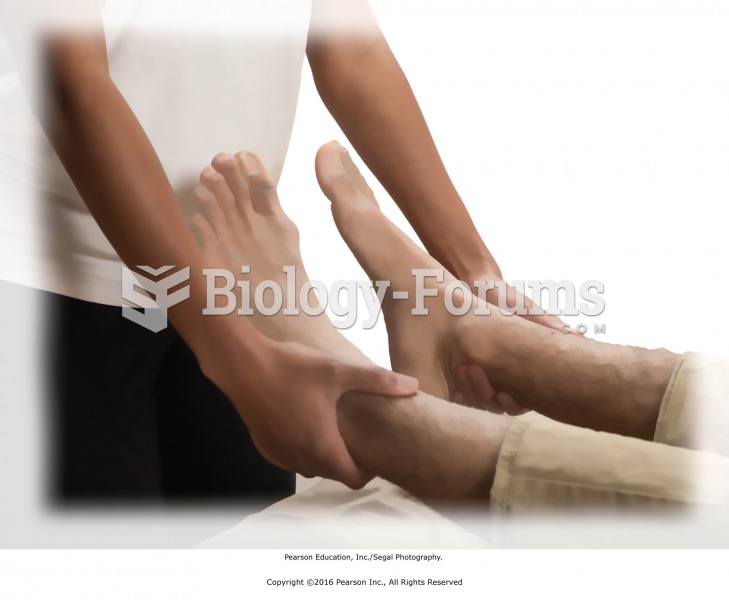|
|
|
Asthma attacks and symptoms usually get started by specific triggers (such as viruses, allergies, gases, and air particles). You should talk to your doctor about these triggers and find ways to avoid or get rid of them.
A serious new warning has been established for pregnant women against taking ACE inhibitors during pregnancy. In the study, the risk of major birth defects in children whose mothers took ACE inhibitors during the first trimester was nearly three times higher than in children whose mothers didn't take ACE inhibitors. Physicians can prescribe alternative medications for pregnant women who have symptoms of high blood pressure.
Amoebae are the simplest type of protozoans, and are characterized by a feeding and dividing trophozoite stage that moves by temporary extensions called pseudopodia or false feet.
The ratio of hydrogen atoms to oxygen in water (H2O) is 2:1.
About 80% of major fungal systemic infections are due to Candida albicans. Another form, Candida peritonitis, occurs most often in postoperative patients. A rare disease, Candida meningitis, may follow leukemia, kidney transplant, other immunosuppressed factors, or when suffering from Candida septicemia.
 Many people consider the British statesman Winston Churchill (1874–1965) to be an exemplar of the ...
Many people consider the British statesman Winston Churchill (1874–1965) to be an exemplar of the ...
 Tai chi walk along straight line. From tai chi stance, shift weight to the back leg and turn the ...
Tai chi walk along straight line. From tai chi stance, shift weight to the back leg and turn the ...





